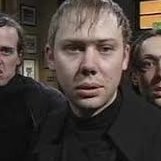-
Sign up for free and receive a month's subscription
You are viewing this page as a guest. That means you are either a member who has not logged in, or you have not yet registered with us. Signing up for an account only takes a minute and it means you will no longer see this annoying box! It will also allow you to get involved with our friendly(ish!) community and take part in the discussions on our forums. And because we're feeling generous, if you sign up for a free account we will give you a month's free trial access to our subscriber only content with no obligation to commit. Register an account and then send a private message to @dave u and he'll hook you up with a subscription.
Should Corbyn remain as Labour leader?
Should Corbyn remain as Labour leader?
218 members have voted
-
Recently Browsing 0 members
- No registered users viewing this page.
-
Who's Online 98 Members, 3 Anonymous, 666 Guests (See full list)
- Lee909
- Megadrive Man
- TD_LFC
- kemskem
- Dicko
- MOGLET
- torahboy
- Double 86
- YorkshireRed
- Elite
- George Costanza
- DaveT
- 3 Stacks
- Scott_M
- bossy
- Skidfingers McGonical
- Rotpeter
- manwiththestick
- BeefStroganoff
- tokyojoe
- Harry's Lad
- Edward.
- Creator Supreme
- King Kenny 86
- Simbo
- Pete
- CrownPaints
- redinblack
- skend04
- eba
- morourke
- Planet Origi
- Kepler-186
- niallers
- The Guest
- waddy78
- detour
- Mudface
- gkmacca
- chrisbonnie
- bizzle10
- VERBAL DIARRHEA
- chrisbrand
- Tj hooker
- Six Times
- Rico1304
- Keith Fizz
- Code
- Em City
- deiseach
- SHG
- Moo
- TheSire
- Red74
- Goldnotgreen
- Tony Moanero
- biglad
- eggman
- Kevin D
- Razoray
- suzy
- Captain Willard
- matty210
- jonnyp
- Stu Monty
- SasaS
- Raymond Duck
- Reckoner
- Carvalho Diablo
- BigGamesJames
- Josef Svejk
- Caramac
- Mathewbet1
- dcl
- Captain Turdseye
- Mook
- an tha
- AHA
- M_B
- Ocja
- littletedwest
- Wezza
- andye1772
- gumps
- lifetime fan
- Captain Howdy
- Ronnie Whelan
- derykw
- Mark M
- Lascaille
- Pidge
- whtwht
- John102
- Turkish Delight
- Champ
- Gareth
- ralph
- TheDrowningMan





Recommended Posts
Join the conversation
You can post now and register later. If you have an account, sign in now to post with your account.